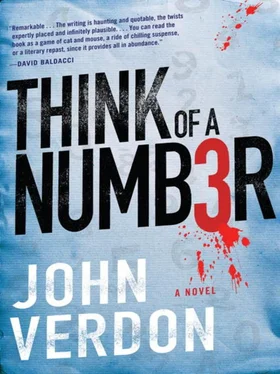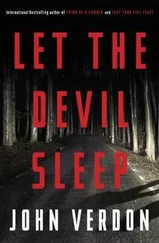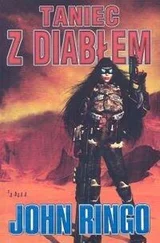Wigg, at whom the tirade was directed, seemed unaffected by its nastiness. “Senior Investigator Gurney once said that he believed all the victims were likely to be connected through some common factor beyond drinking. I was thinking rehab attendance could be that factor, or at least be part of it.”
Rodriguez laughed derisively. “Maybe this, maybe that. I’m hearing a lot of maybes but no real connections.”
Kline looked frustrated. “Come on, Becca, tell us what you think. How firm is our footing here?”
“That’s a difficult question to answer. I wouldn’t know where to begin.”
“I’ll simplify it. Do you buy Gurney’s theory of the case-yes or no?”
“Yes, I do. The picture he painted of Mark Mellery’s being mentally tortured by the notes he was receiving-I can see that as a plausible part of a certain kind of murder ritual.”
“But you look like you’re not entirely convinced.”
“It’s not that, it’s just… the uniqueness of the approach. Torturing the victim is a common enough part of serial-murder pathology, but I’ve never seen an instance of its being carried out from such a distance in such a cool, methodical manner. The torture component of such murders generally relies on the direct infliction of physical agony in order to terrorize the victim and give the killer the feeling of ultimate power and control that he craves. In this case, however, the infliction of pain was entirely cerebral.”
Rodriguez leaned toward her. “So you’re saying it doesn’t fit the serial-murder pattern?” He sounded like an attorney attacking a hostile witness.
“No. The pattern is there. I’m saying that he has a uniquely cool and calculated way of executing it. Most serial killers are above average in intelligence. Some, like Ted Bundy, are far above average. This individual may be in a class by himself.”
“Too smart for us-is that what you’re saying?”
“That’s not what I said,” replied Holdenfield innocently, “but you’re probably right.”
“Really? Let me get this on the record,” said Rodriguez, his voice as brittle as thin ice. “Your professional opinion is that BCI is incapable of apprehending this maniac?”
“Once again, that’s not what I said.” Holdenfield smiled. “But once again you’re probably right.”
Once again Rodriguez’s sallow skin reddened with anger, but Kline intervened. “Surely, Becca, you’re not implying that there’s nothing we can do.”
She sighed with the resignation of a teacher saddled with the dullest students in the school. “The facts of the case so far support three conclusions. First, the man you’re chasing is playing games with you, and he’s very good at it. Second, he is intensely motivated, prepared, focused, and thorough. Third, he knows who’s next on his list, and you don’t.”
Kline looked pained. “But getting back to my question…”
“If you’re looking for a light at the end of the tunnel, there’s one small possibility in your favor. As rigidly organized as he is, there’s a chance he may fall apart.”
“How? Why? What do you mean, ‘fall apart?’”
As Kline asked the question, Gurney felt a tightening in his chest. The raw feeling of anxiety arrived with a cinematically sharp scene in his imagination-the killer’s hand gripping the sheet of paper with the eight lines Gurney had so impulsively put in the mail the previous day:
I see how all you did was done ,
from backwards boots to muffled gun .
The game you started soon will end ,
your throat cut by a dead man’s friend .
Beware the snow, beware the sun ,
the night, the day, nowhere to run .
With sorrow first his grave I’ll tend
and then to hell his killer send .
Methodically, seemingly contemptuously, the hand crumpled the paper into a diminishing ball, and when the ball was improbably small, no larger than a nugget of chewed gum, the hand slowly opened and let it fall to the floor. Gurney tried to force the disturbing image from his mind, but the scenario had not quite run its course. Now the killer’s hand held the envelope in which the poem had been mailed-with the address side up, the postmark clearly visible, the Walnut Crossing postmark.
The Walnut Crossing… Oh, God! A draining chill spread from the pit of Gurney’s stomach down through his legs. How could he have overlooked such an obvious problem? God, calm down. Think . What could the killer do with that information? Could it lead him to the actual address, to their home, to Madeleine? Gurney felt his eyes widening, his face growing pale. How could he have been so obsessively focused on launching his pathetic little missive? How could he not have anticipated the postmark problem? What danger had he exposed Madeleine to? His mind careened around that last question like a man racing around a burning house. How real was the danger? How imminent? Should he call her, alert her? Alert her to what, exactly? And frighten her half to death? God, what else? What else had he overlooked in his tunnel-vision focus on the adversary, the battle, the puzzle? Who else’s safety-who else’s life-was he ignoring in his headstrong determination to win the game? The questions were dizzying.
A voice intruded into his near panic. He tried to fasten on to it, use it to regain his balance.
Holdenfield was speaking. “… an obsessive-compulsive planner with a pathological need to make reality conform to his plans. The goal that controls him absolutely is to be in absolute control of others.”
“Of everyone?” asked Kline.
“His focus is actually very narrow. He feels he must completely dominate through terror and murder the members of his target-victim group, who seem to represent some subset of middle-aged male alcoholics. Other people are irrelevant to him. They’re of no interest or importance.”
“So where does the ‘falling apart’ business come in?”
“Well, it so happens that committing murder to create and maintain a sense of omnipotence is a fatally flawed process-no pun intended. As a solution to the craving for control, serial killing is profoundly dysfunctional, the equivalent of pursuing happiness by smoking crack.”
“They need more and more of it?”
“More and more to achieve less and less. The emotional cycle becomes increasingly compressed and unmanageable. Things that weren’t supposed to happen do happen. I suspect something of that nature occurred this morning, resulting in that police officer’s being killed instead of your Mr. Dermott. These unforeseen events create serious emotional tremors in a killer obsessed with control, and these distractions lead to more mistakes. It’s like a machine with an unbalanced drive shaft. When it reaches a certain speed, the vibration takes over and tears the machine apart.”
“Meaning what, in this specific case?”
“The killer becomes increasingly frantic and unpredictable.”
Frantic. Unpredictable . Again the cold dread spread out from the pit of Gurney’s stomach, this time up into his chest, his throat.
“Meaning the situation is going to get worse?” asked Kline.
“In a way better, in a way worse. If a murderer who used to lurk in a dark alley and occasionally kill someone with an ice pick suddenly bursts out into Times Square swinging a machete, he’s likely to get caught. But in that final mayhem, a lot of people might lose their heads.”
“You figure our boy might be entering his machete stage?” Kline looked more excited than revolted.
Gurney felt sick. The macho-bullshit tone that people in law enforcement used to shield themselves from horror didn’t work in certain situations. This was one of them.
Читать дальше












